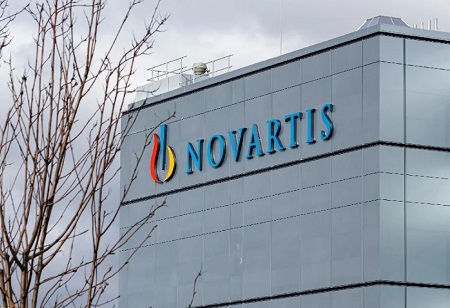India Pharma Outlook Team | Monday, 27 March 2023

In a pivotal trial, Novartis' Kisqali breast cancer medication reduced the risk of recurrence in patients with early-stage disease diagnosis, boosting the company's growth prospects. By 0734 GMT on Monday, the Swiss company's shares had risen 5.8% to a four-week high after it announced that a panel of independent supervisors had advised ending the trial early because an interim analysis had demonstrated a clear benefit.
The drug's late-stage trial in a form of cancer that responds to hormones revealed that, when combined with standard endocrine therapy rather than endocrine therapy alone, Kisqali significantly reduced the risk of recurrence. Since Kisqali's approval, Pfizer's Ibrance has lost market share in the treatment of hormone-driven breast cancer that has spread to other body parts. The market is thought to be much larger in the earlier stages, when tumours can still be surgically removed. Eli Lilly's competing medication Verzenio is approved in the early setting for patients who are at a high risk of recurrence following surgery.
Both high-risk and intermediate-risk patients were used in the testing of Kisqali. As per Stifel analyst Eric Le Berrigaud, "kisqali could beat verzenio by offering a more convenient side effect profile, efficacy being equal and all." He continued by saying that the trial update would increase the market's low confidence in the Chief Executive Vas Narasimhan's targets of 4% annual sales growth through 2027 and a 40% core operating income margin starting in 2027. In the second half of the year, Novartis plans to spin off Sandoz, its generic drug division, increasing the company's reliance on the success of its drug development efforts. Kisqali, which saw sales gain 31 per cent to $1.2 billion last year, is one of two new drugs with a particularly important role for the group's future sales growth.
The other is iptacopan, which is being trialled against a rare genetic blood disorder, possibly challenging AstraZeneca's drugs Soliris and Ultomiris. Detailed trial results will be presented at a medical conference, Novartis said, without identifying the meeting or its timing. It will engage with regulators across the world to seek approval for wider use, the firm added.